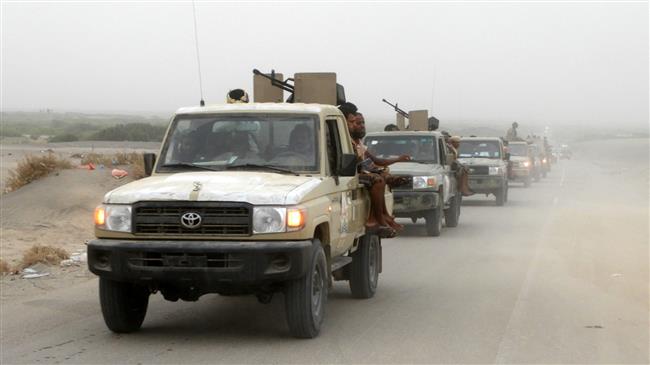
RNA - In a statement on Monday, EU foreign ministers underlined their strong support for a UN-led peace initiative to end the Saudi war against the impoverished nation, ruling out any military solution to the conflict.
The ministers also called on all sides of the conflict to cease fire in the besieged port city of Hudaydah, through which 70 percent of food imports to Yemen are shipped.
“The EU will maintain its engagement with all parties to the conflict and stands ready to increase its action in Yemen, including in delivering humanitarian aid across the country and in mobilizing development assistance to fund projects in crucial sectors,” the statement read.
The EU ministers urged “all parties to the conflict to ensure the protection of civilians and fully respect international humanitarian law, including unimpeded humanitarian access and safe passage for those who want to escape the fighting.”
They called on the Saudi-led coalition to ensure the free and rapid passage of ships containing humanitarian supplies.
“The EU is deeply concerned with the impact of ongoing hostilities, including bombardments in densely populated areas, the besieging of cities, the use of anti-personnel mines and cluster munitions, as well as attacks causing the destruction of civilian infrastructure including schools, medical facilities, residential areas, markets, water systems, ports and airports,” the statement said.
The statement came after the UN’s Yemen envoy Martin Griffiths briefed them on the worsening humanitarian situation in Yemen.
Earlier this month, Saudi-backed forces began an all-out assault to seize Hudaydah, through which the bulk of international humanitarian aid enters war-torn Yemen. Saudi Arabia and its allies have already placed an all-out embargo on other Yemeni border terminals.
The offensive, however, failed to achieve its goal, thanks to firm resistance mounted by Yemeni troops and Houthi fighters in defense of the city.
Hudaydah ‘in state of terror’
Meanwhile, tens of thousands of Yemenis have fled Hudaydah and crammed into a temporary shelter in the capital, Sana’a.
A school has been opened to serve as one of the shelters as students are on their summer vacation. The last two days have seen a sharp rise in the number of people coming for shelter.
“Hudaydah was in a state of terror. Everyday there are people fleeing the city. We arrived here a week ago when there were few people. Now it is crowded with people coming from Hudaydah,” said Nasser al-Haddad, a displaced resident.
Yemeni cities like Sana’a are preparing more shelters for people arriving from the western coast region and there is a dire need for humanitarian aid.
“So far we have received about 5,000 families each with six members according to the international standard. So the total number is big. We are seeking assistance from the international organizations,” said Ibrahim Sharaf al-Din, a humanitarian affairs officer in Sana’a.
The crowded environment coupled with hot weather has caused the spread of skin and respiratory illnesses at the shelter.
“The most common symptom is skin rash, with a large number of patients. And the second is respiratory infection. Among the displaced people there are a lot of children suffering from malnutrition. Most of them didn’t receive any vaccination. We are trying our best to help them,” said Ahmed Baadani, a medical worker in Sana’a.
According to Press TV, Saudi Arabia and allies launched the war on Yemen in 2015 to reinstate a Riyadh-loyal former regime. More than 10,000 people have died in the war, which has entered its fourth year.
The war and blockade have caused famine across Yemen. The United Nations says a record 22.2 million Yemenis are in need of urgent food aid.
Several Western countries, in particular the United States and Britain, have been supplying the Saudis with advanced weapons and military equipment during the invasion.
847/940